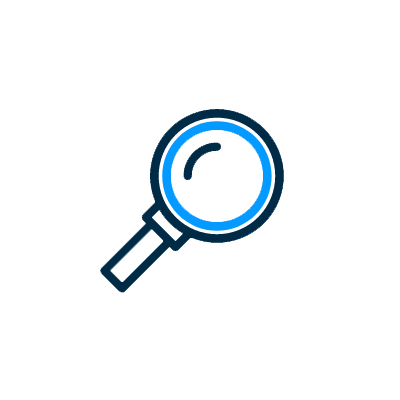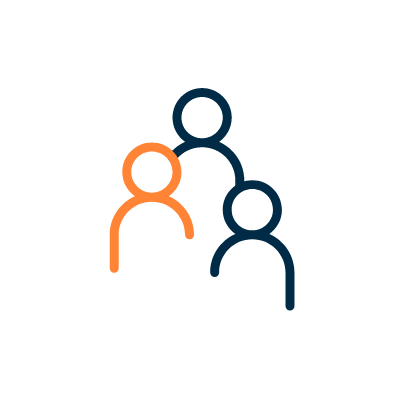
News
Federal Budget 2021: What you need to know
Treasurer Josh Frydenberg delivered his third budget on Tuesday 11th May. It has been seen as broadly positive for small businesses, with skills, training, the digital economy and dispute resolution high priorities.
With an election in sight, the budget contained significant new spending plans to support the nation’s SME’s and startups.
-
Tax
Australia's low- and middle- income earners will get $7.8billion back from the government after a key tax break - the Low and Middle Income Tax Offset (LMITO), was extended for another financial year. The decision is expected to benefit more than 10million people and is worth up to $1,080 for individuals and $2,160 for dual income couples.
Taxpayers with taxable income:
Up to $37,000 will have their tax reduced by up to $255
More than $37,000 will see offset increase by 7.5c per dollar (maximum $1,080 for incomes $48,000 -$90,000)
Over $90,000 the offset will reduce by 3 cents per dollar in excess, zeroing out at $126,000.
The Low Income Tax Offset (LITO) is unchanged for 2021-22 (maximum $700).
-
Asset write offs
Small and medium sized businesses will be able to immediately deduct the full cost of all new asset purchases for another 12 months, as well as access the small business loss carry-back scheme
First announced in the 2020 budget, the temporary full-expensing measure allows businesses with up to $5 billion in aggregated annual turnover or total income to immediately deduct the full cost of eligible depreciable assets of any value.
The measure, which was due to expire on June 30, 2022, will now continue for another 12 months, giving Australian businesses the ability to use it for all eligible assets acquired from 7.30pm on October 6, 2020, and first used or installed by June 30, 2023.
-
Loss carry-back extended
The temporary loss-carry back scheme has similarly been extended for another 12 months.
This policy, which was also announced in last year’s budget, allows incorporated businesses to utilise tax losses to offset previously taxed profits.
It means when eligible companies lodge their 2022-23 tax return, they will be able to offset previously taxed profits from as far back as the 2018-19 income year to receive a tax rebate.
The value of the rebate is limited, as the amount carried back cannot be more than the earlier taxed profits.
Companies that opt not to use this measure can still continue to carry losses forward.
As with the asset write-off, this scheme is also available to businesses with aggregated turnover of up to $5 billion and will now expire in June 2023.
-
Digital economy package
A key item in this year’s budget is the Government’s digital economy plan – which was announced last week. The $1.2 billion package includes a list of spending measures which will benefit the SME and tech communities the most, including new rules around the depreciation of intangible assets, to a tax break for the local games industry. There is also funding to increase the awareness of e-invoicing for business, a commitment to review venture capital tax incentives and a $12.7 million extension to the Digital Solutions – Australian Small Business Advisory Services program.
-
Deregulation measures
In a bid to reduce regulatory burdens on businesses, it was announced that a $120 million deregulation package would be brought in. The four-year package will aim to boost regulatory technology solutions for wage compliance to help SMEs comply with modern awards using new technology.
The package will also streamline reporting requirements under the National Greenhouse and Energy Reporting Scheme, simplify digital services in the health sector, and review regulations imposed on commercial fishing businesses and the financial sector.
-
Patent box
In an effort to see more innovation commercialised in Australia, the Government has launched a new ‘patent box’ which will start on 1 July 2022.
Under the patent box, income earned from new patents that have been developed in Australia will be taxed at a concessional 17 per cent rate — almost half the rate that applies to large companies.
The patent box will apply to the medical and biotech sectors.
-
Administrative Appeals Tribunal
The Government will build on the insolvency reforms that came into effect in January, by allowing small businesses to apply to the Administrative Appeals Tribunal (AAT) to pause or modify ATO debt recovery actions where the debt is being disputed in the AAT.
Applying to the AAT instead of the courts will save small businesses at least several thousands of dollars in court and legal fees and as much as 60 days of waiting for a decision.
-
Superannuation guarantee
The $450 minimum monthly income threshold has been scrapped, which means employers will need to make superannuation guarantee payments for more employees from next year.
The Government plans to introduce legislation to make this change by July 1, 2022, and it would come into effect at the start of the first financial year after the legislation is passed by Parliament.
The superannuation guarantee is currently set at 9.5%, but is due to increase to 12% by 2025-26.
-
2021 Storms and Floods — tax treatment of qualifying grants
The Government will provide an income tax exemption for qualifying grants made to primary producers and small businesses affected by the storms and floods in Australia.
Qualifying grants are Category D grants provided under the Disaster Recovery Funding Arrangements 2018, where those grants relate to the storms and floods in Australia that occurred due to rainfall events between 19 February 2021 and 31 March 2021. These include small business recovery grants of up to $50,000 and primary producer recovery grants of up to $75,000. The grants will be made non-assessable non-exempt income for tax purposes.
-
Childcare subsidy
The Government has announced changes to its childcare subsidy, adding $1.7 billion to the $10.3 billion a year already budgeted for childcare. This will increase the affordability of childcare for low- and middle-income families, with 250,000 families will be better off by an average of $2,200 each year.
This spending will particularly benefit families with two or more children under five; however, it will also help couples with a combined income of more than $189,390 by removing the subsidy cap that restricts them to a maximum of $10,560 per child a year.
-
Changes to excise for distillers
Micro brewers and distillers will benefit from $225 million in tax relief from July, under new changes to excise tax, with the excise refund cap for small brewers and distillers boosted from $100,000 to $350,000 per year.
Eligible brewers and distillers will also receive a 100% refund of any excise duty they pay, rather than the 60% refund that currently exists up to a cap of $100,000.
-
Housing affordability
Three new measures have been announced to help Australians purchase a home.
A Family Home Guarantee will be established, giving 10,000 guarantees over four years to single parents with dependants. It will allow them to purchase a home with a deposit of 2%, while the Government guarantees the additional 18%.
The current existing New Home Guarantee will be extended for another year, helping 10,000 first home buyers purchase or build a home with a deposit of at least 5%.
The Government is also increasing the cap on its First Home Super Saver Scheme, allowing Australians to access $50,000 instead of $30,000 to help buy a property. The scheme was introduced in 2017 and allows first home buyers to make contributions to an account that is treated like super for tax purposes.
-
Hours of work for foreign students
Existing work hour limits for student visa holders who are employed in the tourism and hospitality sectors have been removed.
The Government is also expanding the COVID-19 ‘pandemic event visa’ to include tourism and hospitality.
Temporary visa holders working in — or intending to work in tourism and hospitality — will be able to apply for the COVID-19 visa up to 90 days before their existing visa expires and then remain in Australia for up to 12 more months.
-
JobTrainer Fund & apprenticeship boost
The budget included a suite of measures designed to address workplace shortages, boost skills levels and get more people back into work.
The Government is extending the JobTrainer fund, which provides access to affordable training courses for young people. Eligibility for the fund, will also be expanded to include employed groups most affected by the pandemic.
The Government also aims to create more than 170,000 new apprenticeships and traineeships over the next four years. Under the expanded program, the number of eligible places will be uncapped, and the duration of the 50% wage subsidy will be increased to 12 months.
Businesses of any size will be able to claim the subsidies for new apprentices and trainees who begin their employment between October 5, 2020, and March 31, 2022, with a maximum amount of $7,000 per quarter available.
More women will be encouraged to break into non-traditional trades, with training support for 5,000 places and more STEM scholarships for women, in partnership with industry.
The Government is removing the current exclusion that applies to deductions for the first $250 spent on education courses, which will give more business owners (and their employees) a reason to learn new skills.
In his budget speech, Josh Frydenberg highlighted the importance of the contribution made by the SME community and his support for them, stating: “small and family businesses are the engine room of our economy…They are at the heart of every local community…As they strive to recover, we need the tax system to work for them, not against them.”
He finished by stating: “Australia is now well on the road to recovery.
“Our economy is forecast to grow by 1 ¼ per cent in 2020-21, rising to 4 ¼ per cent in 2021-22.
“Employment is at a record high, with 75,000 more Australians in jobs than before the pandemic.”
Date published 12 May 2021 | Last updated 14 May 2021
Choose the right accounting firm for you
Running your own business can be challenging so why not let TaxAssist Accountants manage your tax, accounting, bookkeeping and payroll needs? If you are not receiving the service you deserve from your accountant, then perhaps it’s time to make the switch?

Local business focus
We specialise in supporting independent businesses. Each TaxAssist Accountant runs their own business, and are passionate about supporting you.

Come and meet us
We enjoy talking to business owners and self-employed professionals who are looking to get the most out of their accountant. You can visit us at any of our multiple locations, meet with us online through video call software, or talk to us by telephone.

Switching is simple
Changing accountants is easier than you might think. There are no tax implications and you can switch at any time in the year and our team will guide you through the process for a smooth transition.